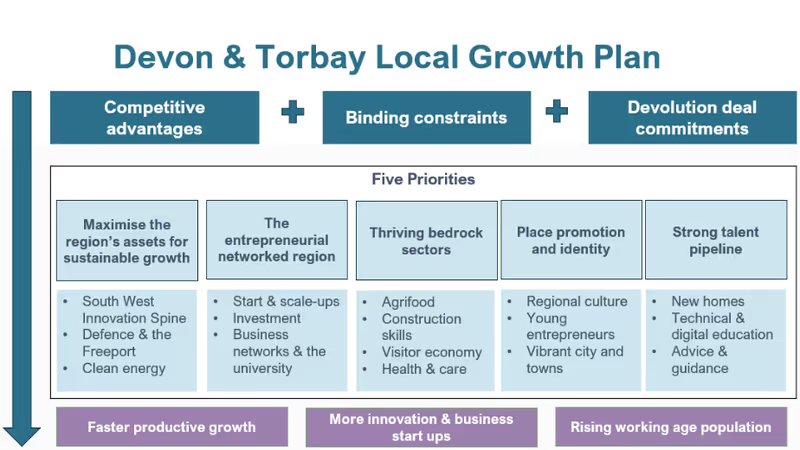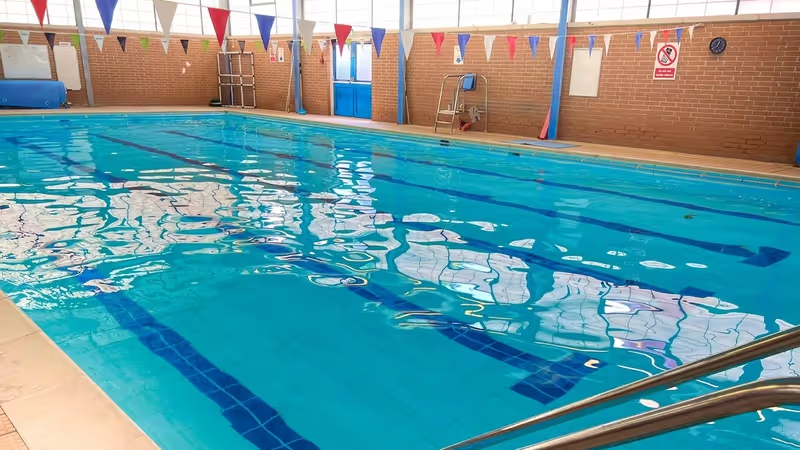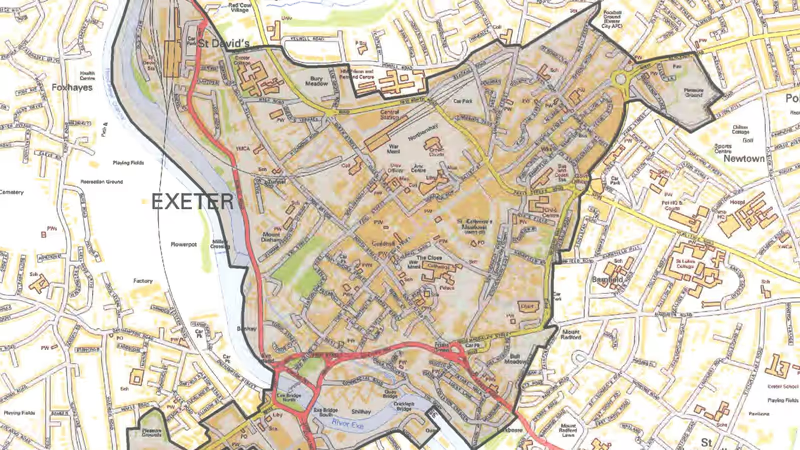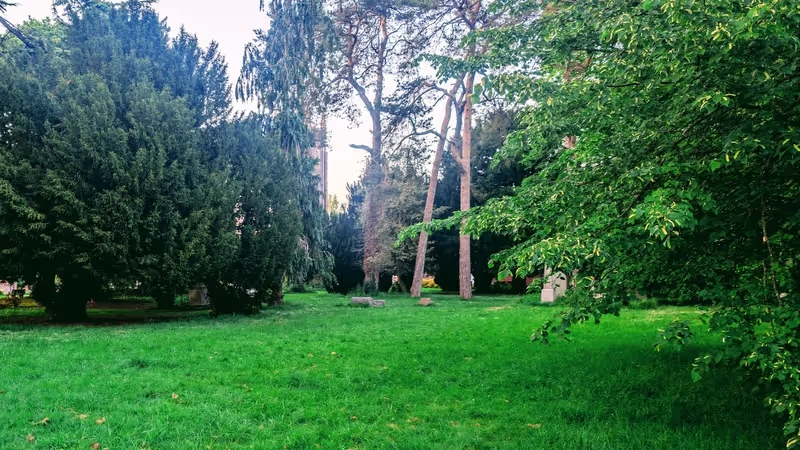Exeter City Council is planning to reverse its decision to require affordable housing as part of the redevelopment of the Clifton Hill sports centre site in Newtown.
Council-owned developer Exeter City Living has challenged last year’s council planning committee decision to require the inclusion of eleven flats for social rent as part of a luxury enclave of high specification four- and five-bedroom homes to be built on council-owned land alongside an area of the city which is among the most deprived places in the country.
Its challenge is based on an unpublished viability assessment which values the site for development as student accommodation despite council leaders repeatedly ruling out this use and the city council passing a resolution in January 2020 to exclude this possibility.
Exeter City Living, which received a council loan of nearly £16 million last year to buy and develop the site on the basis it would make a 20% profit, and has since also received a £425,000 government grant for the project, now claims that the development is no longer financially viable if the affordable housing requirement remains.
It says that if the council removes this requirement a government grant may be available to cover the cost of building the flats for social rent, but does not say that it will receive the money.
If the city council planning committee agrees to scrap the affordable housing requirement at its meeting on Monday, other developers will be able to cite its decision as a material consideration in future planning decisions when they seek to avoid affordable housing requirements.
There is no opportunity for public comment on the plan, which the council only published on Monday this week and which is being presented as a fait accompli.
We asked the council questions about the plan on Tuesday, requesting responses by this morning as the decision will be taken next Monday. It said it was not able to answer them in the timeframe provided, despite itself being responsible for limiting notice of the decision to a single week.
The council also provided a statement which was sent earlier this week to concerned ward councillors, who had been kept in the dark about the plan. The statement addressed none of the issues we raised.
 Clifton Hill sport centre has been closed since March 2018 after suffering weather damage
Clifton Hill sport centre has been closed since March 2018 after suffering weather damage
An unpublished viability assessment is at the centre of Exeter City Living’s claim that it can no longer develop the site on the basis it previously agreed with the council.
This secrecy is normally justified on the grounds that such assessments contain commercially sensitive information, but for a council-owned and financed company to rely on a tactic that is partly responsible for the poor public perception of many private sector property developers is unusual, to say the least.
Members of the planning committee are in the same position as the public: neither are entitled to see it. The detail it contains, on which the council planning officer’s recommendation that the committee approve this decision is based, is not available for scrutiny.
However it is normal practice for planning officers to summarise viability assessment findings, as well as those of an independent evaluation of the findings that is also required, to enable planning committee members to make better-informed decisions.
No such summary has been provided in this case. We asked the council why not, but it did not answer. We also asked it why no opportunity for public consultation on this decision has been provided. Again, no answer.
The planning officer’s report does, however, say that the viability assessment demonstrates that Exeter City Living’s previously-agreed proposals are no longer financially viable when “an alternative use of the site as purpose built student accommodation”, which would dramatically increase the value of the land, is taken into account.
It also says that the independent evaluation of the viability assessment agrees, concluding that Exeter City Living would not be able to deliver affordable housing as part of the development if Exeter City Council agrees that purpose built student accommodation could create this elevated “alternate use value” for the land.
This is one of four government-specified tests which viability assessments must pass: they must demonstrate that “the alternative use could be implemented on the site in question”. If so, the viability of development can be assessed on the basis of the land value for that alternative use.
The city council planning officer concluded that all four tests had been met and that the Clifton Hill sports centre site should therefore be valued, not for development as residential housing, but for development as purpose built student accommodation, making the previously-agreed proposals no longer financially viable.
What he did not say was that, having bought the land for a song, Exeter City Living now wanted the council to behave as if it had paid full whack.
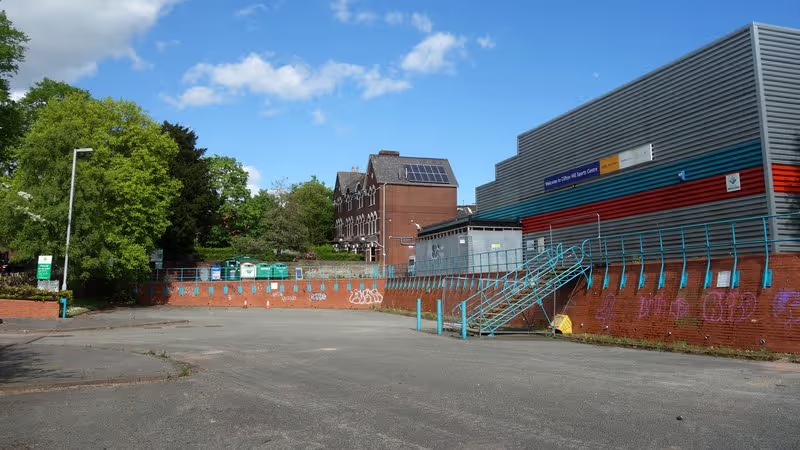 The proposed development will take place largely on the brownfield areas of the site …
The proposed development will take place largely on the brownfield areas of the site …
It is not clear on what basis the council thinks student accommodation could be built on the Clifton Hill site when it has repeatedly ruled out this use. When the decision was taken in January 2019 to demolish the sports centre and build housing instead, the council’s scrutiny committee, its Executive and a meeting of the full council itself all unambiguously resolved not to allow the development of student accommodation there.
The council resolution was to “delegate authority to the city surveyor to take the necessary steps to ensure the Clifton Hill land is not used for purpose built student accommodation”. Pete Edwards, then council leader, said the “voluntary condition of sale had been imposed to benefit the economic, social and environmental well-being of the community”.
The decision was publicised by the city council’s press office, ward member Richard Branston (who is a member of the planning committee) said that all the Newtown & St Leonard’s ward councillors supported the decision, and the local Labour party promoted it on its campaign leaflets.
In July that year Phil Bialyk, who had by then taken over as council leader, said: “I’ve made a commitment, and my party has made a commitment, not to build student houses on that site”.
In January 2020, when the city council approved a loan of £15,643,478 to Exeter City Living to allow it to buy and develop the land, Phil Bialyk reinforced the message, saying Exeter City Living, as a council-owned development company, would ensure that the housing mix delivered on the Clifton Hill site would accord with council requirements.
In fact this loan was explicitly agreed on the basis that the Clifton Hill site was valued for residential housing and not student accommodation, an alternative use of the site which the council knew, and said, at the time would increase the site value by “in excess of £2 million”.
The decision not to sell the land on the open market for the highest price, which would have meant development for student accommodation, required the Secretary of State’s approval because of the size of the under-valuation.
The loan was also explicitly granted on the basis that the development would make a 20% profit. Exeter City Living now says that rising land values and Brexit-related labour and supply chain cost increases, among other things, have increased development costs so much that its proposals would no longer make enough money to satisfy government guidance on profit margins, although this is only so if the land value is increased to the levels a student accommodation developer would pay.
However rising land values and post-Brexit shortages, particularly in the construction sector, which were all widely predicted long before the council’s loan decision, should have come as no surprise to either the council or its property development company.
Every property developer, and every local authority that owns a property development company, has to factor these issues into their decisions, and most have managed to do so since the EU referendum, which took place three and half years before the council gave its company a green light at Clifton Hill, without reaching for viability assessments based on alternative land uses that have already been ruled out.
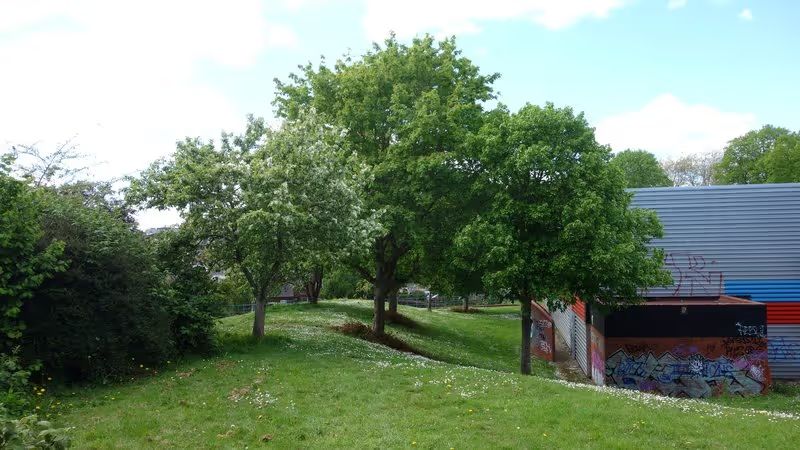 … but will also consume green space and entail the removal of a range of trees
… but will also consume green space and entail the removal of a range of trees
We asked the council whether the city surveyor did, in fact, take the necessary steps to ensure the Clifton Hill land is not used for student accommodation, and what those steps were. We asked it on what basis the viability assessment, and the independent report on the viability assessment, consider that the alternative use of the site as student accommodation is possible.
We asked on what basis the council thinks the Clifton Hill site could be used to build student accommodation, so allowing the alternate use and consequent increase in land value claimed in the viability assessment, and on what basis the council accepts that assessment.
We asked whether the Secretary of State had approved the lower site valuation based on the council ruling out student accommodation on the site, and we asked whether the Secretary of State’s decision had any bearing on the subsequent viability assessment.
We also asked the council why it had not considered the possibility that a developer would seek to reduce or remove the affordable housing requirement by using a viability assessment in this way (a frequently-used tactic in the sector) when any of the relevant decisions concerning the site were made. And we asked whether its decision to rule out student development on the site was, in fact, relevant at all.
It answered none of these questions. Nor did it explain what, apart from predictable development cost increases and some minor material changes in circumstances identified in the planning case officer’s report, had caused the expected development costs to rise so much that the 20% profit margin on which Exeter City Living’s £16 million loan had been based had evaporated.
We were also left wondering whether the council’s political leadership has been kept in the loop. Just four months ago, when asked about progress on the development at a scrutiny committee meeting, council leader Phil Bialyk, who said he was having regular discussions with Exeter City Living’s directors, did not mention that their plans for the Clifton Hill site might no longer be financially viable.
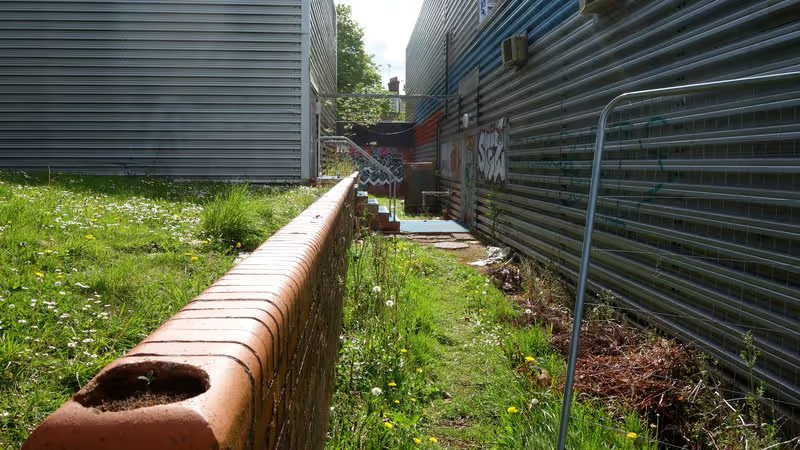 Clifton Hill sport centre has deteriorated since its closure
Clifton Hill sport centre has deteriorated since its closure
Exeter City Council has end to end control over the redevelopment of the Clifton Hill sports centre site. It owns the land and the development company and has directly financed the development with public money. It is also the local planning authority, with control over both planning policy and individual planning decisions.
Whether the council or the company is responsible for the failure to foresee the rising land values and post-Brexit shortages that have led to the company asking the council to disapply its affordable housing policy, the consequences of doing so could be far-reaching.
The affordable housing provision agreed last December was already a perversion of the council’s policies. It was presented as 26% of the development (eleven of 42 dwellings) and deemed acceptable as the developer could claim vacant building credit to reduce the affordable housing it would otherwise have to supply by the size of the demolished sports centre.
But the eleven affordable units were small flats, and the remaining 31 units large houses, so when the proposed development was measured by floor area the affordable units represented less than 13% of the total. The council’s policy is for 35% of total housing provision to be affordable.
And now the company wants the council to scrap the affordable housing requirement altogether, leaving the door open for developers to cite the decision as a material consideration in future planning applications in the city when they want to avoid affordable housing requirements too.
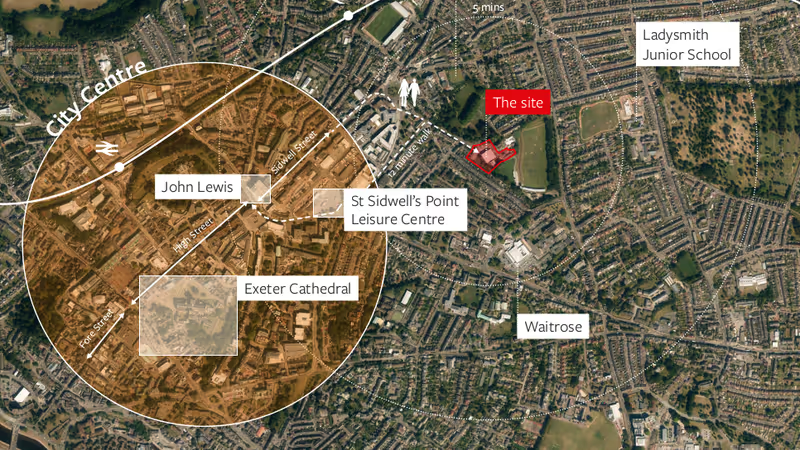 The Clifton Hill development will include 45 car parking spaces despite being less than five minutes’ walk from the city centre …
The Clifton Hill development will include 45 car parking spaces despite being less than five minutes’ walk from the city centre …
When planning permission for the Clifton Hill development was granted at the end of last year, councillors queued up to praise the development’s affordable housing provision.
One welcomed the “principle of the development focussing on high quality, affordable homes and not seeking to maximise profit”, while another said “this superb development […] will enhance the community and will provide sorely needed social housing and affordable homes for the community”.
A third said “the people lucky enough to live in the houses will bring a lot to the area” and council leader Phil Bialyk called it “a major boost to the community”.
Which community? The council is building a luxury enclave of high specification four- and five-bedroom homes alongside an area of the city which is among the most deprived in the country.
The expected purchase price of the houses has not been provided, although it will be included in the unpublished viability assessment. If we look at similar houses as a guide, as depicted in an Exeter City Living consultation document for the development, such as those on Marmalade Lane in Cambridge, we might expect the Clifton Hill houses to be priced at around £700,000 each if they were on sale today.
How many local residents will be able to afford to live in these houses? We should probably look further afield for their future owners. Not long after planning permission was granted, Exeter City Council enthusiastically promoted a Guardian story subtitled: “Winchester, Exeter and York are new property hotspots for those fleeing the capital after lockdown in search of space”.
As independent city councillor Jemima Moore, who was elected by a landslide in 2019 on the back of public opposition to the council’s plans for the Clifton Hill site, said at the planning committee meeting that granted permission for the development last year: “This is not an application coming from a private developer to develop private land. This is a development on public land and this is Exeter City Council’s very own development delivery company, a company which should be setting the bar, showing the expected standard for developments in our city.
“We should be able to expect something excellent and yet we have a proposal that does not accord fully with our own policies. It doesn’t meet the very standards that we expect other developers to abide by. It will provide much needed residential homes but homes which are out of the reach of most of those who live in Newtown on a space which previously belonged to all of us.”
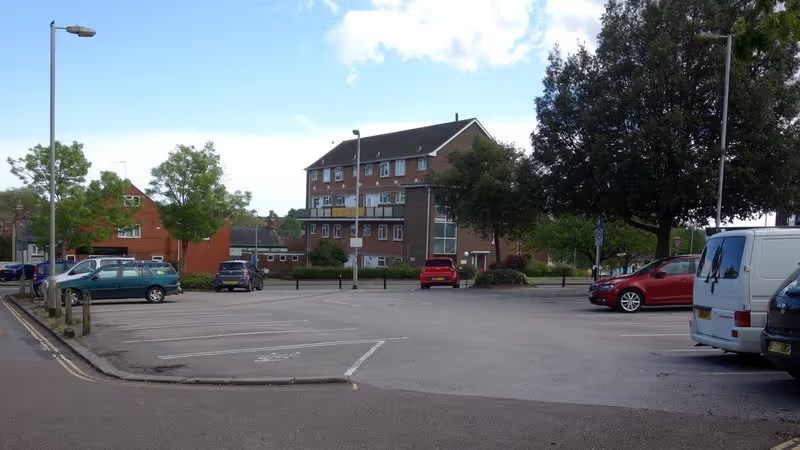 … with three public car parks within the same radius
… with three public car parks within the same radius
It appears that Exeter City Living would like the members of the council planning committee to take it on trust that, despite everything, it will nevertheless deliver the affordable housing planned for the site via a Homes England grant. This may be what happens, although the council admits that it also may not.
The statement issued to ward councillors says, in the passive voice, that “it is insisted that affordable council housing is to be provided and this will be honoured”. It adds: “The council can potentially benefit from [a] Homes England grant”.
The city council’s planning officer appears satisfied that Exeter City Living “has indicated to officers [its] intention to seek third party funding to deliver affordable housing”.
Do these reassurances provide a sufficiently substantial basis for the city council’s planning committee members to remove the current affordable housing requirement for the site?
We asked the council why the planning committee is being asked to do so before Exeter City Living secures funding to provide the needed housing by another means, and why the planning officer’s recommendation is not that its decision should be contingent on Exeter City Living securing the grant funding it seeks first.
We asked whether the development would proceed without any affordable housing provision if Exeter City Living cannot secure grant funding, and how the eleven social rented homes for the over 60’s that were identified as a specific need in the area during public consultation would otherwise be provided.
We also asked whether the council would recommend such a decision if the applicant were not a council-owned company. No answers were provided.
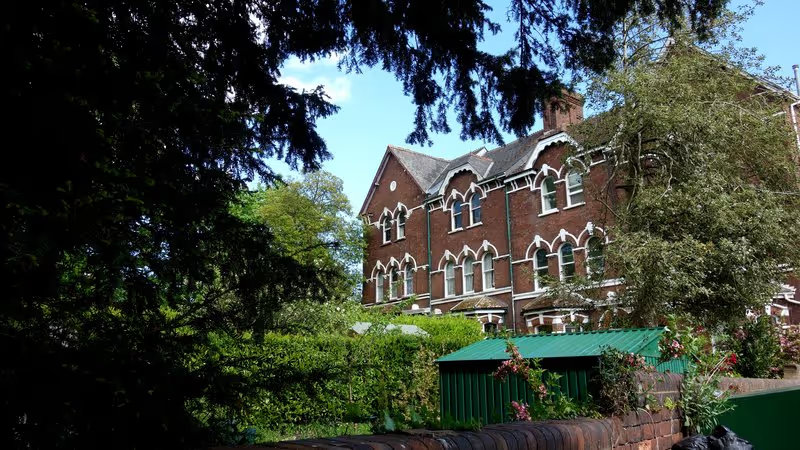 Exeter Labour Party has property interests alongside the development site
Exeter Labour Party has property interests alongside the development site
When the council planning committee considered Exeter City Living’s planning application last year it did so on the basis of the application as a whole, balancing numerous relevant considerations against one another. It is now being invited to rescind a single, major element of its decision in isolation.
This is similar to the tactic employed at the Harlequins shopping centre. Having secured planning permission on the basis it will build a hotel on the site, the developer has since submitted a revised application to return to an earlier, rejected, vision which will replace the hotel with a second co-living block.
The planning committee is also being asked to make Monday’s decision in haste, the same way as earlier decisions about the site were taken. This often leads to ill-informed decisions and increases the risk of the council making a mistake.
Is Homes England really insisting that Exeter City Council rescinds last year’s decision to require affordable housing on the Clifton Hill site before it will consider funding affordable housing there itself, as the statement issued to ward councillors implies? Why would it do so given the likelihood that such a decision will undermine the city’s ability to enforce its affordable housing policy in future?
One answer would be that Homes England is a stakeholder, and expected to be a shareholder, in the Exeter City Fund property development vehicle that is approaching Exeter like a speeding juggernaut and would like the road ahead cleared of planning policy that might obstruct its progress.
Exeter City Council’s most significant powers are as the city’s planning authority. If what is happening at Clifton Hill is a guide to its intent when it has complete control over every aspect of the development process, we should expect the property development bonanza that is coming under the Liveable Exeter banner to deliver more of the same.
We should also expect other developers to follow the way Exeter City Council-owned Exeter City Living is paving for them, by seeking to use viability assessments to evade affordable housing provision and by returning with revised applications to get the parts of planning decisions they don’t like overturned after the fact.

